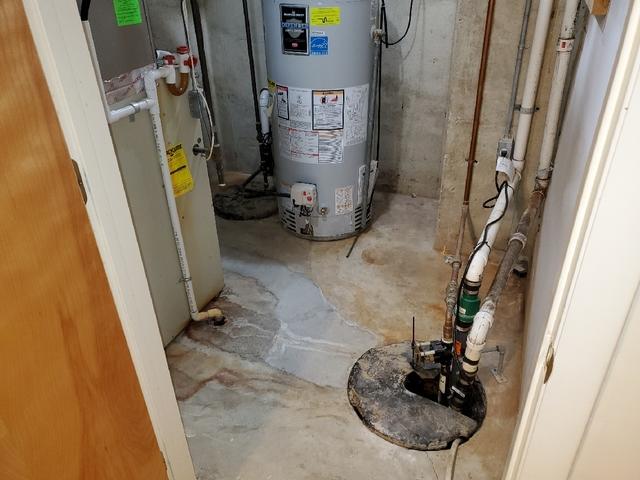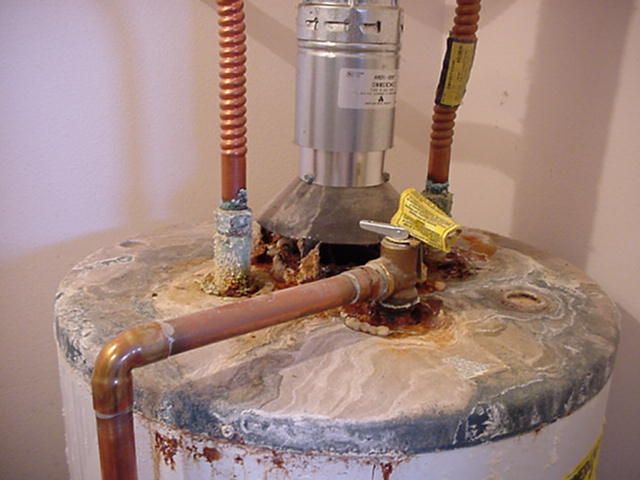Upgrade Your Heating Oil System
December 5, 2024

When winter arrives, one of the most important systems in your home is your heating system. For homes that rely on heating oil, ensuring that your system operates at peak efficiency can not only keep your home comfortable but can also save you money on heating costs. Over time, heating oil systems can become less efficient due to wear and tear, outdated equipment, and improper maintenance. Upgrading your heating oil system is an investment that can pay off in both short-term savings and long-term comfort.
In this guide, we will explore several ways to upgrade your heating oil system for maximum efficiency. Whether you’re considering small adjustments or a complete overhaul, these steps will help ensure your heating system works as effectively as possible.
1. Consider Upgrading to a Modern Oil Burner
One of the most effective ways to boost the efficiency of your heating oil system is by upgrading your oil burner. Older burners, especially those installed more than 15 years ago, are often far less efficient than their modern counterparts. Newer oil burners use advanced technology to burn oil more completely, which reduces waste and improves the overall efficiency of the system.
Modern oil burners can be up to 20% more efficient than older models. They use advanced combustion techniques, such as electronic ignition and improved air-to-fuel ratios, to ensure that every drop of oil is used effectively. Upgrading your burner may require an investment, but the energy savings over time can offset the cost.
2. Install a High-Efficiency Oil Boiler
If your heating oil system includes an older boiler, it may be time for an upgrade. Newer high-efficiency oil boilers use advanced technology to extract more heat from the fuel. The efficiency of a boiler is measured by its Annual Fuel Utilization Efficiency (AFUE) rating. Older models typically have AFUE ratings between 60% and 70%, while modern high-efficiency models can achieve ratings of 90% or more.
High-efficiency oil boilers are equipped with a variety of features designed to improve heat transfer and reduce energy loss. These may include condensing heat exchangers, modulating burners, and sophisticated control systems that allow for more precise regulation of heat output. Investing in a high-efficiency oil boiler can significantly lower your energy consumption and reduce your carbon footprint.
3. Upgrade Your Oil Tank
The condition and size of your heating oil tank play a crucial role in the overall efficiency of your heating system. If your oil tank is old, rusty, or improperly sized for your heating needs, it can cause inefficiencies. A well-maintained, properly sized oil tank ensures that your system can store enough oil for your needs without wasting energy or fuel.
Consider upgrading to a modern oil tank that is made from corrosion-resistant materials such as steel or fiberglass. These tanks are less likely to suffer from leaks and rust, which can compromise your heating system’s efficiency. Additionally, ensure that your oil tank is properly insulated to prevent heat loss and reduce the likelihood of freezing in colder weather.
When upgrading your oil tank, make sure it is the correct size for your home and heating needs. An oversized tank can result in wasted fuel, while an undersized tank may force your system to run more frequently to keep up with demand.
4. Install a Programmable Thermostat
A programmable thermostat is an affordable yet effective way to improve the efficiency of your heating oil system. With a programmable thermostat, you can set specific temperature schedules that align with your daily routines, ensuring that your heating system runs only when needed. This helps to eliminate unnecessary heating when you’re away from home or sleeping, ultimately saving you money on your energy bills.
Modern thermostats can also be controlled remotely, allowing you to adjust your home’s temperature from your smartphone. This feature adds convenience and flexibility, ensuring that your home is always at the ideal temperature without wasting energy.
5. Improve Your Home’s Insulation
No matter how efficient your heating oil system is, if your home isn’t properly insulated, much of the heat will escape, forcing your system to work harder. Proper insulation can make a significant difference in your heating system’s performance. Insulating your home’s walls, attic, floors, and windows reduces heat loss and helps maintain a consistent indoor temperature, allowing your heating oil system to operate more efficiently.
In addition to improving your home’s insulation, consider adding weatherstripping or caulking around windows and doors to prevent drafts. Simple upgrades such as these can reduce the workload on your heating system and lead to significant savings.
6. Clean and Maintain Your Heating Oil System Regularly
Regular maintenance is essential to ensure that your heating oil system is running at its best. Over time, dirt and dust can accumulate in various components of the system, reducing its efficiency. It is important to clean and service your system annually to ensure that everything is functioning optimally.
Make sure to have your oil burner cleaned and inspected by a professional at least once a year. The technician will remove soot and other debris from the burner, check the air-to-fuel ratio, and ensure that the burner is working efficiently. Additionally, the technician will inspect the boiler and the rest of the heating system to identify any potential issues that could affect performance.
Changing your oil filter regularly is another important maintenance task. A clogged filter can reduce fuel flow, causing your heating system to work harder and consume more energy. Your oil filter should be replaced annually to ensure that your system runs smoothly.

7. Add Zone Heating for Better Control
If you have a large home with multiple rooms, adding zone heating can be an excellent way to improve the efficiency of your heating oil system. Zone heating involves installing separate thermostats in different areas of your home, allowing you to control the temperature in each zone independently. This way, you can heat only the rooms that are in use, rather than wasting energy heating empty spaces.
For example, if you spend most of your time in the living room, you can keep the temperature in other rooms lower, reducing overall energy consumption. Adding zone heating can be especially beneficial if your home has an open floor plan or multiple levels. Click to access more on how to optimize heating in your home for better energy efficiency.
8. Seal Ductwork Leaks
If your heating system relies on ductwork, it’s essential to ensure that the ducts are properly sealed. Leaky ducts can result in significant energy loss, as heated air escapes before reaching its intended destination. Inspect your ductwork for any visible gaps or cracks and seal them with duct mastic or foil tape.
If you’re unsure whether your ducts are leaking, consider having a professional perform a blower door test or use a duct leakage test to identify areas where air is escaping. Sealing these leaks will help your system operate more efficiently, ensuring that heated air reaches every corner of your home.
9. Consider Alternative Heating Options
While upgrading your heating oil system can certainly improve efficiency, it’s also worth exploring alternative heating options that may be more energy-efficient in the long run. For instance, you might consider installing a hybrid system that combines oil heating with another energy source, such as solar panels or a heat pump. Hybrid systems offer the flexibility of switching between different energy sources, allowing you to take advantage of the most cost-effective option at any given time.
Conclusion
Upgrading your heating oil system for maximum efficiency is an investment that can provide substantial savings over time. By replacing outdated equipment, performing regular maintenance, and making energy-efficient improvements to your home, you can reduce your heating costs and ensure that your system is working as efficiently as possible. Whether you’re upgrading to a modern oil burner, installing a programmable thermostat, or improving your home’s insulation, every upgrade you make will contribute to a more efficient and cost-effective heating system. Take the time to assess your system, and consider making the necessary upgrades to enjoy a warmer, more energy-efficient home.





Recent Comments